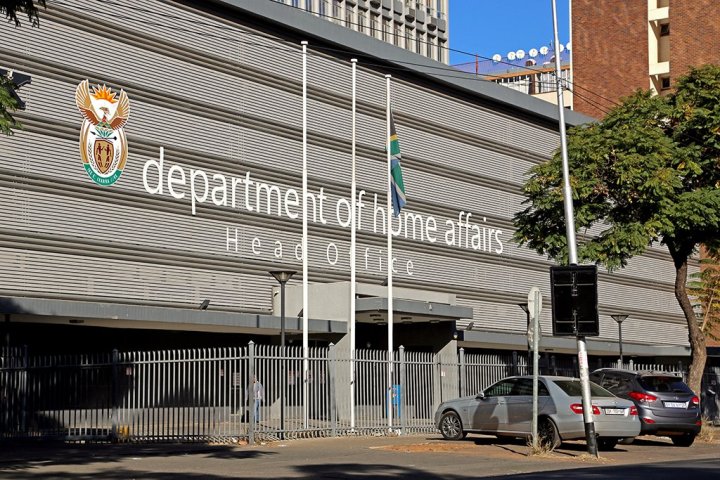SA to Launch Digital ID System as Home Affairs Pushes for Full Digitisation
Delivering his department’s 2025 Budget Vote address in Parliament, Schreiber said the Digital ID policy would soon be submitted to Cabinet for approval, followed by public consultations.

- Country:
- South Africa
In a major policy milestone, Minister of Home Affairs Leon Schreiber has unveiled government’s vision to develop South Africa’s first-ever Digital ID system, positioning it as a cornerstone of a broader plan to revolutionise public services, enhance security, and drive inclusive digital participation.
Delivering his department’s 2025 Budget Vote address in Parliament, Schreiber said the Digital ID policy would soon be submitted to Cabinet for approval, followed by public consultations.
“Beyond the material benefits, such as clamping down on fraud and enhancing inclusion, the Digital ID system will also restore the integrity and pride of our cherished South African identity,” Schreiber said.
What Is the Digital ID and What Will It Do?
The Digital ID will enable citizens to:
-
Remotely authenticate their identity for both public and private sector services.
-
Access digital versions of key documents, such as Smart IDs and passports, via smart devices and online platforms.
-
Participate securely in services like banking, finance, and insurance—sectors that increasingly rely on fast, accurate identity verification.
“This is not just digital government. This is a digital revolution,” the Minister declared, describing the transformation as “Home Affairs @ home.”
Key Highlights: Home Affairs Transformation in Action
Schreiber painted a picture of a department on the move, with notable achievements from the past year that signal readiness for transformation:
-
3.6 million Smart ID cards issued, marking a new annual record.
-
Cleared a visa backlog of over 306,000 applications, some dating back more than a decade.
-
46,000 illegal immigrants deported, the highest number in five years, surpassing even France and Germany.
-
Deployed drones and body cameras, resulting in a 215% increase in detection and prevention of illegal border crossings.
-
Enabled naturalised citizens and permanent residents to access Smart IDs for the first time, reducing reliance on the vulnerable green ID book, which is 500% more susceptible to fraud than Smart IDs.
“If this is what we could achieve in one year, just imagine what we can accomplish in five,” said Schreiber.
Expanding Access Through Banks and Tech Integration
One of the most innovative expansions will come through an enhanced partnership with banks. Currently piloted in 30 branches, the project allows citizens to apply for Smart IDs and passports at their local bank. The Department aims to extend this service to at least 100 branches this financial year.
The broader goal is to allow users to:
-
Apply for Smart IDs and passports directly from their banking apps.
-
Opt for home delivery, secured through facial recognition technology.
-
End the production of new green ID books by the end of 2025, phasing out outdated documents vulnerable to fraud.
“We will scale up access to Smart IDs and bring services directly to people’s homes and devices,” Schreiber said.
Global Reach: New Services for South Africans Abroad
In a move to enhance services for citizens overseas, the Department of Home Affairs will launch new international service hubs starting this month. These facilities will offer a five-week turnaround time for Smart IDs and passports.
Initial rollout countries include:
-
Australia
-
New Zealand
-
United Arab Emirates
By the end of 2025, the rollout will expand to:
-
France
-
Germany
-
The Netherlands
In early 2026, the services will reach North America, delivering on the vision of truly borderless Home Affairs services.
Laying the Foundation for a Capable, Inclusive State
Schreiber emphasised that the move toward a digital identity and digitised service delivery is part of a larger reform model centred on:
-
Decentralisation
-
Modernisation
-
Remote access
-
Transparency and fraud reduction
These reforms are underpinned by continuous investment in the Border Management Authority, the Government Printing Works, and digital platforms that link core services into a unified network.
“We are laying the foundation for a new South Africa, where citizens interact with their government as easily as they pay for data or electricity,” he said.
A Vision for the Future
As the Digital ID policy nears Cabinet approval, the department is preparing for public hearings, where citizens, civil society, and private sector stakeholders will shape the final version of the policy.
Ultimately, the vision is to bring government services directly to people—at home, at work, or abroad—and build a more secure, efficient, and citizen-centric state.
“We are proving that transformation is possible, and that Home Affairs can lead the way in restoring faith in government’s ability to deliver,” said Schreiber.
- READ MORE ON:
- Digital ID South Africa
- Home Affairs @ home
- Leon Schreiber
- Smart ID expansion
- digital transformation South Africa
- government services reform
- Home Affairs budget 2025
- Smart ID banking app
- South Africans abroad
- identity fraud prevention
- Border Management Authority
- green ID book phaseout
- Home Affairs digitisation
- inclusive e-government South Africa










